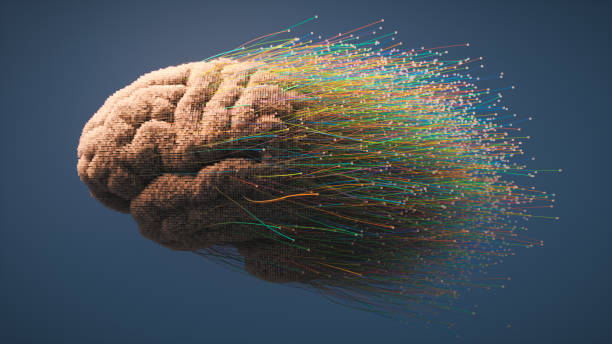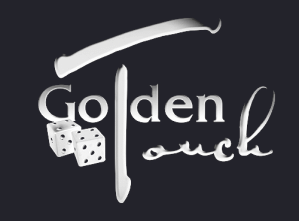
The Illusion of Control in Skill-Luck Hybrid Games
The Illusion of Control in Skill-Luck Hybrid Games
- Global Gambling Participation: Approximately 26% of the world's population—about 1.6 billion people—engage in gambling activities, with 4.2 billion participating at least once annually.
- Blackjack House Edge: When participants use basic strategy, the house edge in blackjack typically ranges between 0.5% and 1%. This means that, over time, the casino expects to win between 0.5% and 1% of all bets placed.
- Gambler's Perception of Control: Research indicates that some gamblers become overconfident in their actions and choices, perceiving them as determinants of event outcomes, a manifestation of cognitive distortions.
Hybrid games such as blackjack, craps and sports betting occupy a distinctive space where strategic thinking intersects with arbitrariness—these games harmonize skill and chance in ways that engage the analytical mind while maintaining unpredictability. Dissimilar to pure games of luck, hybrid games accommodate the application of probability, pattern recognition and statistical modeling.
This assembles a perception that outcomes can be heavily influenced through preparation and strategy; although skill can improve odds in some contexts, the function of randomness remains dominant over the long term, subtly obscuring the boundary between influence and chance.
The Cognitive Impact of Choice and Agency
One of the psychological drivers behind hybrid games is the opportunity for decision-making. Determining whether to "hit" or "stand" in blackjack, when to place a pass line bet in craps or which underdog might outperform in a sports fixture activates cognitive control centers.
Here, the act of determining assembles a sense of agency, strengthening belief in one’s ability to impact outcomes. Even when statistical edges are marginal or non-existent, the capacity to engage interactively with the game reinforces a feeling of mastery. Although distinctly rewarding, this agency can also lead to overestimating personal control in unpredictable settings.
The Function of Control Illusions in Gambling Behavior
The illusion of control—a well-documented cognitive bias—occurs when players overrate their ability to influence outcomes governed primarily by chance. In blackjack, a string of successful hands may be attributed to skill rather than favorable variance. In sports betting, an accurate prediction may validate a belief in predictive prowess, even if the result stemmed from uncontrollable extraneous factors, such as weather or injury.
These interpretations are amplified in skill-luck hybrids, where some patterns and strategies genuinely exist. Here, the interplay between real skill components and random outcomes can fuel continued engagement, leading some players to take increasingly risky positions based on perceived competence.
Emotional Engagement and Pattern Recognition
Gamblers typically display heightened emotional investment in hybrid games due to their immersive combination of logic and luck. Humans are naturally predisposed to seek patterns, even in data governed by randomness—in illustration, a perceived trend in dice rolls or betting outcomes can be interpreted as a signal, prompting a change in strategy.
This drive to identify cause and effect enriches game involvement and stimulates continued participation; although this engagement can provide entertainment and intellectual stimulation, it can also concoct feedback loops where risk-taking becomes normalized in pursuit of perceived mastery.
Responsible Engagement in Modern Platforms
In contemporary gaming backdrops, responsible gambling mechanisms and transparent interfaces contribute to more discerning judgment-making, with digital platforms increasingly incorporating statistical aids and betting limits to support balanced play. In 2025, the maturing culture of online gambling embraces education around probability and variance, cultivating a healthier relationship between players and games.
Here, comparison platforms such as uusimmatkasinot.com highlight licensed casinos and offer detailed reviews, contributing to better-informed choices among users. These platforms make it easier to identify features that align with personal playing styles, providing valuable context in a market characterized by diversity and innovation.
The Appeal of Strategic Complexity
Part of the enduring popularity of hybrid games lies in their strategic complexity. In contrast with pure games of chance, skill-luck hybrids reward those investing time in understanding game mechanics and odds. For example, blackjack partakers adopting card counting systems or optimal betting patterns gain marginal edges over the house.
Meanwhile, sports bettors employing data analytics and predictive modeling can refine their wagers—these pursuits mirror the satisfaction found in other competitive, knowledge-based activities. Although admittedly no strategy guarantees consistent wins, the intellectual engagement itself is a source of satisfaction for many participants.
Behavioral Economics and Game Design
Game designers commonly incorporate elements that amplify the illusion of control: visual feedback, sound design and progressive wins simulate reward systems found in learning psychology. This design encourages continued interaction and dictates participant expectations.
When games signal progress, mastery or near-misses, partakers may become more deeply engaged, reinforcing the belief that outcomes are within reach. Thus, understanding how behavioral economics influences gaming settings adds depth to the adventure and promotes critical thinking about the structure of play.
Balancing Risk with Self-Awareness
Hybrid games can be approached with a mindset that embraces both skill development and variance management, where recognizing that outcomes are probabilistic rather than deterministic supports more adaptive behavior. Thus, informed players can cultivate strategies that emphasize enjoyment and mental engagement over outcome fixation.
Moreover, games like craps or sports betting can offer communal excitement, ritual and competition—all of which contribute to their broad appeal. Therefore, when players understand the limits of their influence, they are better positioned to participate within healthy, enjoyable boundaries.
Innovation in the Gambling Ecosystem
The modern gambling terrain resonates with an exponentially increasing preoccupation with technology, player empowerment and transparency. Here, machine learning, data tracking and adaptive interfaces allow games to be tailored to individual preferences. Meanwhile, the ascendancy of comparison portals and review sites facilitates more instantaneous access to trustworthy platforms and game mechanics.
This transition observes a modification from opaque gaming circumstances toward models promoting informed participation. Spanning digital blackjack tables, AI-assisted sports analytics and mobile craps simulations, participants are increasingly equipped with instruments that heighten the gaming venture while supporting measured play.



